
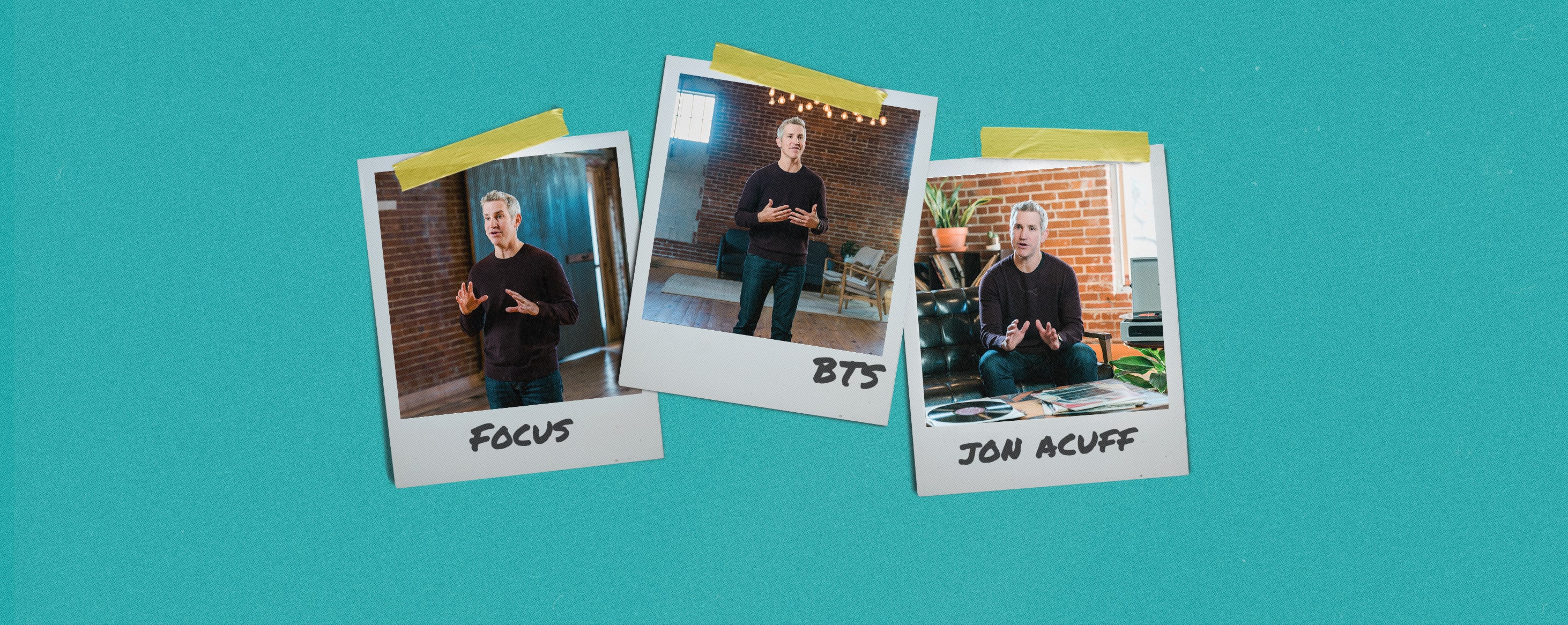
It’s no overstatement to say that we are more distracted now than we’ve ever been. The “chaos machine” in our pockets constantly diverts our attention away from what matters, gluing our eyes to the things that don’t. And with our attention goes our focus.
Addressing this very topic, New York Times bestselling author and speaker Jon Acuff recently filmed a new series with our team entitled Focus: In a World of Bottomless Distractions and Endless Opportunities. We caught up with Jon to hear what he learned while preparing this series and his hope for those who go through it.
Jon: One thing I learned is how distracted we all are. I like to say that our distraction technology has outpaced our ability to focus. Think about how fast distraction has scaled. I mean, twenty years ago the only distraction I had on my phone was a game called snake. I don’t know if you’re my age, but it just was a line that went “doot, doot, doot, doot, doot.” Now, you have every movie ever made, every book ever written, and every podcast ever recorded in your pocket. You have a chaos machine in your pocket. So, it was really interesting to learn—that’s part of why it’s challenging. You shouldn’t feel bad that it’s hard to focus; the odds are stacked against you because of our technology. But there are some really simple things you can do, and that’s what was so fun about filming this series.
Jon: I want viewers to walk away with the idea that you can learn how to focus. It’s not a personality trait. It’s not something that some people are good at and others are bad. When you talk to people about, “Is it easy for you to focus?” or “Do you ever get distracted?” sometimes they make identity statements. They say, “I’m a really distracted person. I can never focus,” as if they can’t learn. But the one thing I want you to walk away with is you can learn, and there’s some very practical things you can do that are actually really fun. And you get to see pretty quick progress. So I want you to walk away with the idea that you can do it and that there’s things you can do.
Jon: My most memorable moment of any series—we’ve done because we’ve done three together (so, I know I’m talking about Focus, but we’ve done Soundtracks and Finish)—my most memorable moment was where I got to the shoot and there was a cliff. They had set up the shoot on the edge of a cliff that was three-hundred feet high, overlooking a river, and there was a rock that was, in my opinion, very close to the edge of the cliff. And they said, “Hey, we just want you to stand on this rock, it’ll be an amazing shot.” And I said, “What’s your second idea?” Because I talk with my hands, I move around a lot, I’m very animated. So, I said, “There’s no way I’m getting on that rock.” So, if you watch that video, I’m perched on the rock. I’m sitting on the rock, that was our compromise, but I’m kind of looking over my shoulder. That was the most memorable. The second was, we filmed in Nissan Titan Stadium in Nashville, Tennessee, where I live. And it was an amazing shot, and they had a drone, and it was just gorgeous. So, I love partnering with RightNow because they always do such beautifully well-thought-out work.

The RightNow Media Team
If you’re a decision-maker at your organization, request a free consultation to find out how RightNow Media can equip and inspire your people.
Not a decision-maker?
Tell your pastor about RightNow Media instead.
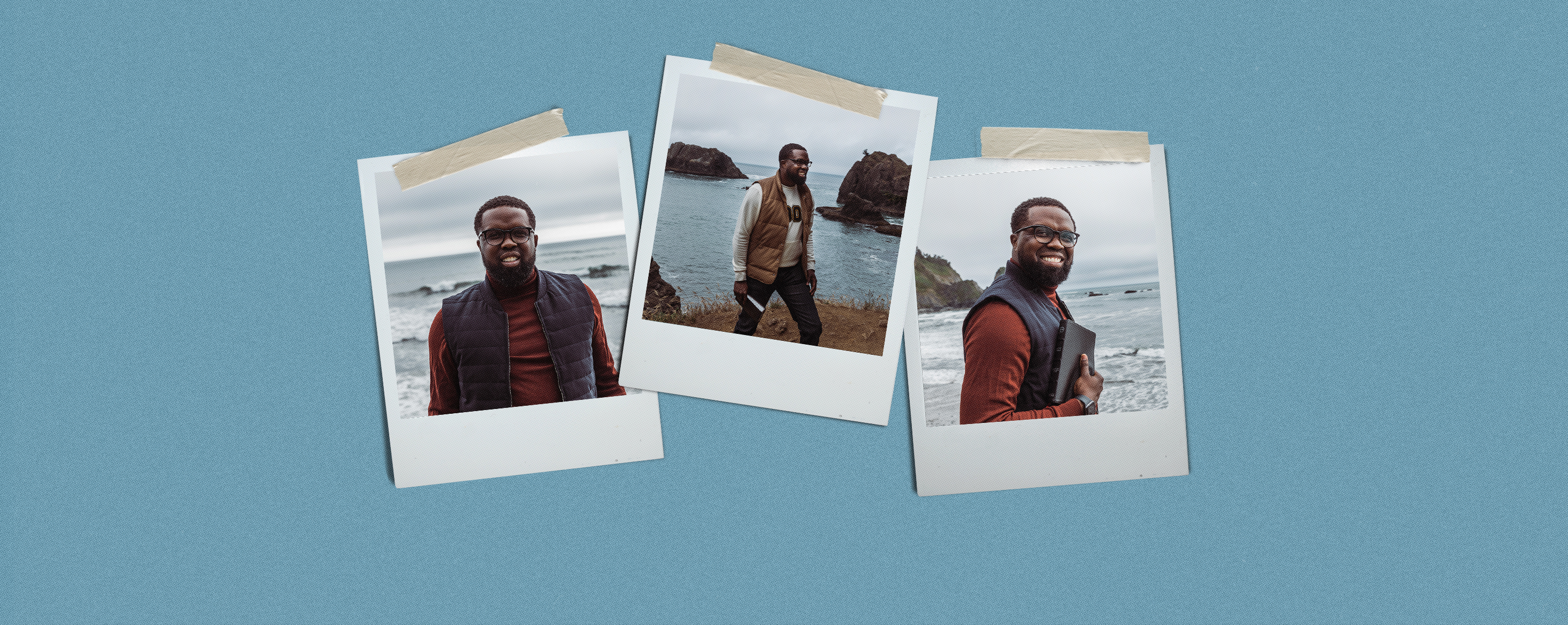

The Bible begins with God. In the book of Genesis, we see his power, creativity, and splendor in what he made. But we also see his mercy, love, and redemption through the flawed people he has made. While Genesis sets the stage for the rest of the Bible, it also helps us see God’s glory in his creation and teaches us that he can make something out of imperfect people like you and me.
Last year, our team traveled with Dr. Charlie Dates to the redwood forests of Northern California to film a series on the book of Genesis. After speaking at the 2021 RightNow Conference, Dr. Dates spoke with us about his experience on that shoot and his hopes for this series.
Charlie: Preparing for Genesis is very different than preparing to teach other books. Genesis is a genre of history that doesn’t really fit the Psalter, Judges, or the prophets. It doesn’t have to be decoded like apocalyptic literature. I learned about the genre sensitivity of the study—that is, wrapping our minds around what the point of Genesis is—is really the best way to see God’s activity so we can teach and preach it.
Genesis could tell us about dinosaurs, Raiders of the Lost Ark, and all that kind of stuff but it doesn’t. It has a view toward chapter 50, getting the scene set for a savior who is going to come. That’s something I came to appreciate while working through the book of Genesis.
It’s different. The Bible gives us varying shades of color in different sections. It’s not monochromatic. When we study the genre, we get to see God’s Word in the fullness of his color—it comes alive. Is there anything better than 4k resolution? If there is, I don’t know. God beats that high-def stuff. Genesis helped show me that.
Charlie: I want viewers to be like, “Man, the Lord is amazing, and Charlie Dates works for Jesus.”
[laughs] Okay, seriously, I want viewers to walk away with a bigger picture of God. If God really did create time, space, and matter and if he did choose one family, and through that family wove this wonderful narrative, then surely he can work through the matters of my life. Surely God can bring something out of nothing where I live. I hope when you see Genesis, you feel the power and presence of God.
Charlie: When you film with RightNow Media you need to do, like, four weeks of yoga. We were in the middle of nowhere—in the Redwoods with trees that looked like they were out of a Narnia book—and I climbed on a [fallen] tree and was walking on it, balancing. I was thinking, “If I don’t get home safely, my wife’s not going to be happy about this.” [laughs]
They go to great lengths to capture the most epic and beautiful scenery to match the picture of the text, so they can deliver what I think is the highest quality video content.
Now, here’s what else I learned: I’m jealous. I didn’t think I was jealous, that I was envious. But the fact that they don’t live in Chicago and don’t work for us at our church . . . I had to repent of some of that. Other than that, it was great. It was fantastic.
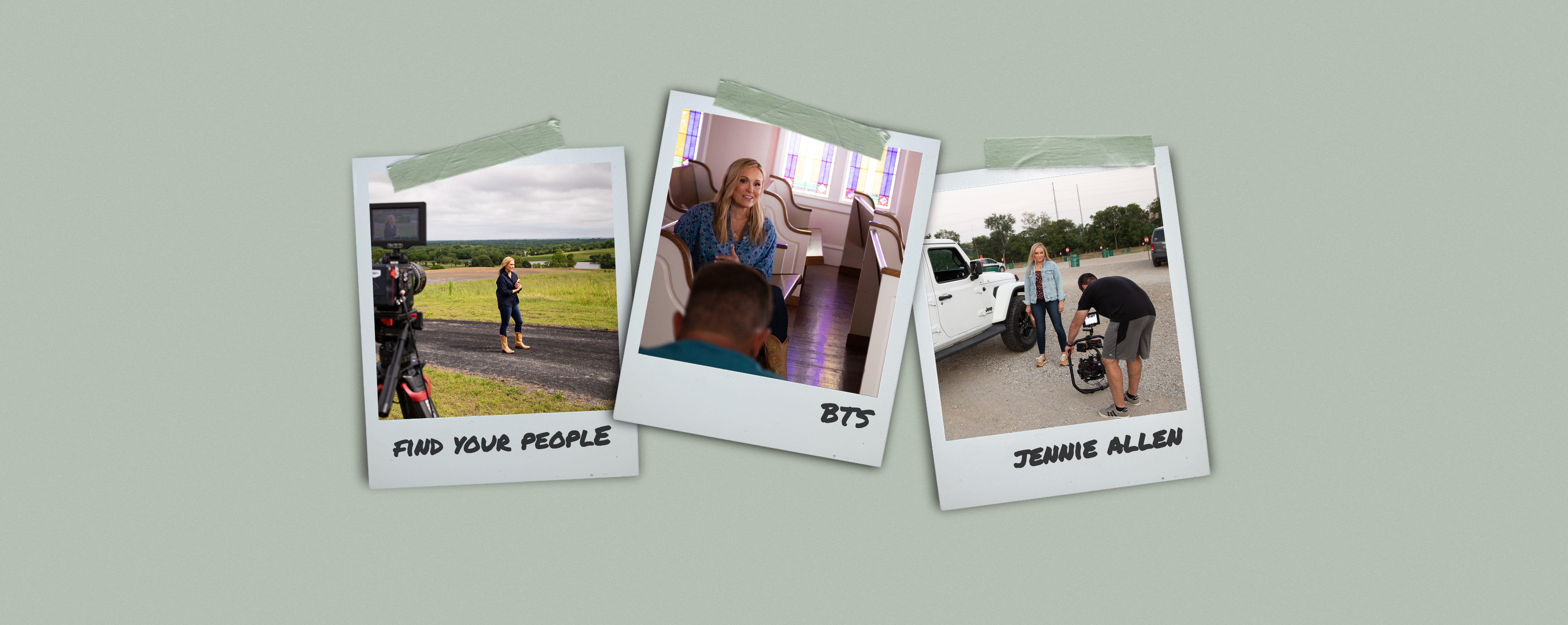

We live in a time where isolation feels more comfortable than living in community. We are used to living alone, running errands alone, and not sharing our hopes or fears with many people. But God never intended us to be secluded from one another.
Author and speaker Jennie Allen dug deep into God’s vision for community while writing her book Find Your People, which she recently developed into a series with the team at RightNow Media. We caught up with Jennie after filming to hear her hope for the series and how living in community has changed her life.
Jennie: The RightNow Media team—they are my people! So many of them are my good friends. We’ve worked together for many, many years. I feel like I can call Phil (VP of Production) with any idea and he’s like, “Let’s go, J!”
Phil has put together such an amazing team of people. Mark (Video Producer) has spent so many hours on my stuff; Courtney (Senior Producer) is awesome—I just feel like everybody has been so gracious and kind to let me build with them.
RightNow Media is a family and I feel like I’m the adopted member of that family (laughs). I’m really grateful that they create with me. I hope that the series we make causes you to love God more—they hope that too. It’s really special and fun that we get to be creative in a way that helps people get to know God better.
Jennie: Wow—it has been a two-year journey for me, which is how working on a book or Bible study goes. But this one has changed every single thing about me—the way I live, the way I think about friendship, the way I eat, the way I run errands. Everything about me is about pulling people in and not doing anything alone.
Even this project, I feel, was a big group project. Being on set with the big locations felt like being with family. Some bad things happened to me that week, and we were all crying together in a bowling alley, praying for my family. That is the way we were meant to live. We aren’t meant to cry alone. We’re meant to cry in each other’s arms and in each other’s presence.
My hope for this series is that it will cause you to rethink hiding anything, that you will live fully known, seen, and connected to others.
Jennie: I hope people walk away from this series with friends. I think we are doing life in a more isolated way than we ever have before. The scary part of that, as a generation, is we were already doing life more isolated than any generation before us. We already had a problem, then COVID-19 and the last couple of years exacerbated the problem.
I hope that viewers don’t feel any pressure when they watched the series. I hope that when you are working through the series a desire rises up within you—a vision and a dream for the way God meant for us to live. This series is all about building a foundation in your life for community that is different from the way we live right now in America.
This study has changed my life. I can’t imagine living any differently. I have a village; I have my people. It’s messy and imperfect, but it is a better, more rich and full way to live.
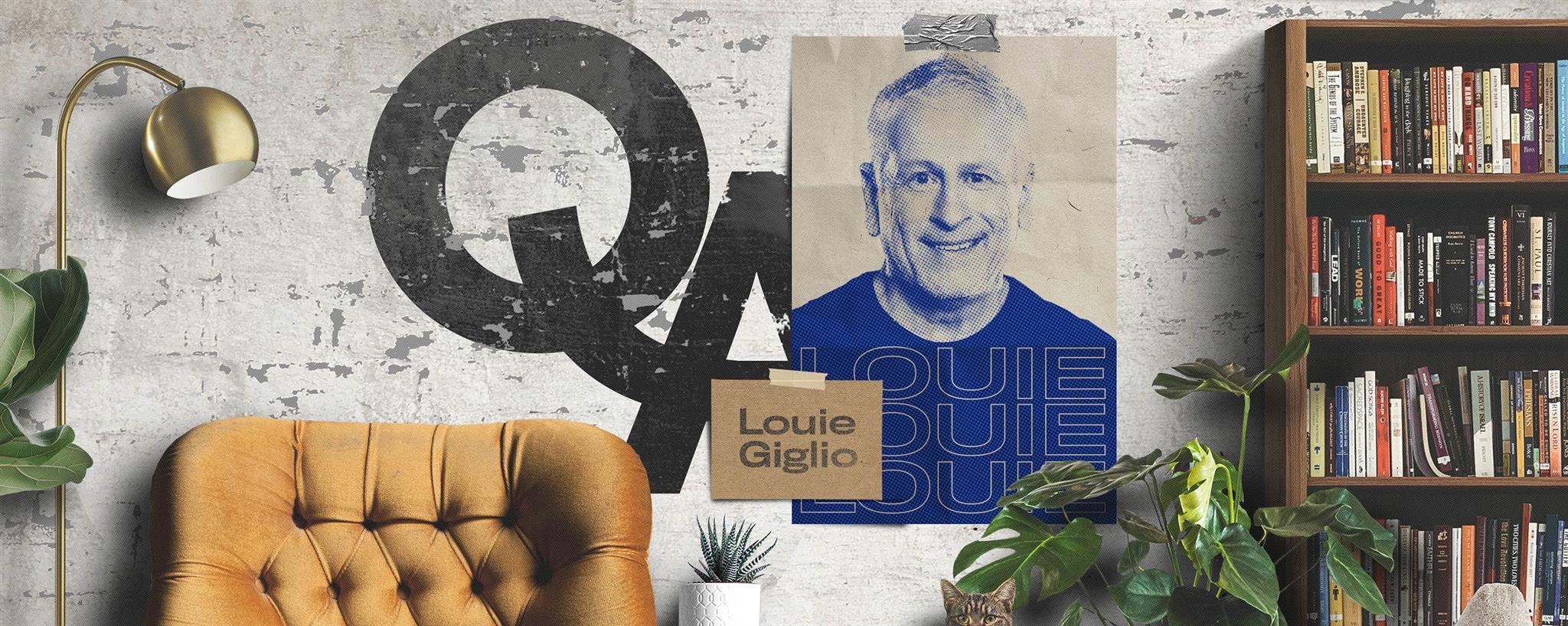

Our production team holds themselves to a high standard of excellence. They work hard to find the best locations, the best teachers, and to film exciting and insightful content for your church and small groups. But every shoot has its own unique challenges and, sometimes, things don’t go exactly to plan.
While filming our upcoming series The Acts of the Apostles, our team and pastor Louie Giglio had to deal with unexpected weather changes and rogue tow trucks during a marathon two days of shooting. We caught up with Louie Giglio to learn about his experience filming this study, what God taught him while preparing his teaching, and his prayer for everyone who goes through this study of Acts.
Louie: It was your typical “I am doing something that is going to make a difference in the kingdom” experience. We recorded in an old factory in Atlanta—metal roof, open spaces, and open-air in many ways. The temperature inside was the same as the temperature outside and the beautiful weather we had the week before had turned into forty-nine degrees and pouring down rain. So, for two days, the amazing RightNow Media team shot this thing under not-the-best conditions.
We got one shot going, it was happening, we were rolling, and a guy comes driving up through the shot! His headlights were shining behind me right into the camera. A tow truck—because some people who had been at the building a few days before left a rental car there—came driving through the shot. I was talking about how the gospel is going to go to the ends of the world and he stops in the shot and starts to back up! BEEP BEEP BEEP. It was like, “Cut. Let’s start over. Hey, can you get your car and go, please?”
But that’s what it’s like when you are shooting one of these Bible studies. When you’re watching it, it’s so put together; the team does an amazing job! But it is a hustle to shoot because the enemy doesn’t want this message to get out. And we’re shooting this in the wild, so you never know what the next distraction will be.
It was like that for two straight days, but props to the RightNow Media team! They’re the best, they did a fantastic job. We had a bond like a family after going through a book like Acts. It was a family event. God was in it. I felt like I had run a marathon after the second day, but it was worth it!
Louie: I love the story of Acts because it’s our story. We are still living in the story of Acts. One of the things that really stuck out to me was as Paul was on his way to Rome—there was a shipwreck, a storm, they were wrecked on the island of Malta—the Bible says everyone was accounted for. Luke, who was writing this, says there were 276 people and they were all accounted for. God is writing a big global story, but he also knows every single one of us. We are all accounted for, and we all have a role in taking the name of Jesus to the ends of the earth.
Louie: You know, the place where we filmed this series was a working factory about a hundred years ago. On either side of the factory was a huge building with multiple train tracks going into it. Then there was another huge building on another side with lots of tracks leading into it. A small channel with a single set of tracks connected all the buildings. I don’t know what they made at this factory, but a train came into one building, a cart took something from that train across to the factory. Then, whatever they made, was taken from the factory to a departing train and sent away. Everything was connected.
As we shot, I thought, “That’s Acts. We are standing in Acts!” God brings the gospel to us in multiple tracks and stories, the gospel changes us, then he takes us somewhere else in the world to people who need to hear that story.
The takeaway from that story is that you are in Acts. It is not just about Peter, Stephen, Paul, Lydia, or all the churches that were planted. The Acts of the Apostles are still in motion taking the story of Jesus to all people. The gospel spread from Jerusalem to Judea, Samaria, and now to the ends of the earth. We are in Acts.
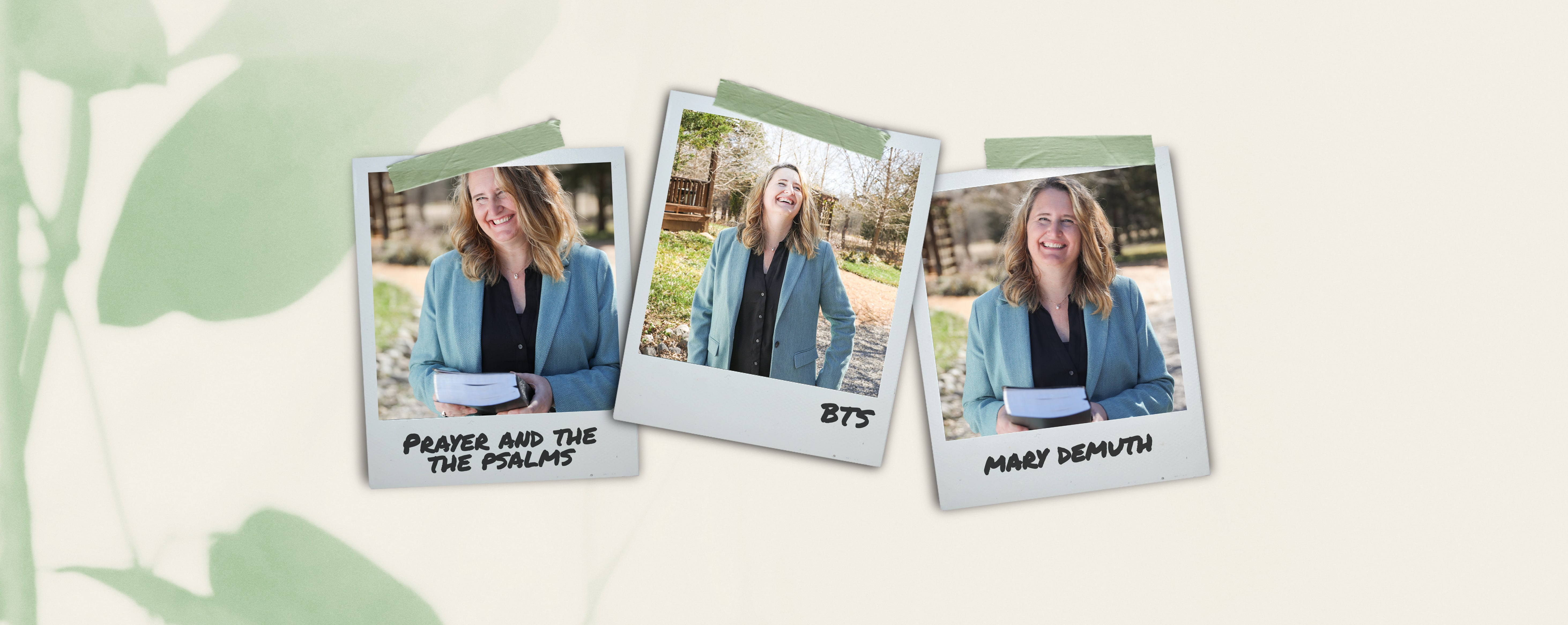

It can be tempting to think of the Bible as a list of rules and old stories, far disconnected from our everyday lives. But when we read the psalms, we find the entire spectrum of human emotion: grief, rejoicing, despair, melancholy, anxiety, hope, and everything in between. In this book of songs, God has given us permission and words for our deepest feelings.
Author and speaker Mary DeMuth recently filmed a daily devotional with our team, exploring the psalms in all of their beauty and emotional range. We caught up with Mary to hear her heart behind this devotional and hope for everyone who goes through it.
Mary: It was super peaceful. I really enjoyed getting to know all of the people on the team and learning about their roles. One of the things I just love is people! So having a bunch of people there was super helpful. What I loved is that they were very professional and very intentional about getting the right shots. And there was no stress, like, “Oh you made a mistake.” I was definitely more hard on myself while they were giving me grace. It was great—I had a really good time!
RightNow Media: What is one thing you learned while preparing for this series?
Mary: One of the topics I talk about in the series is the importance of lamenting. Every time I have taught lament psalms to a group of people, I have seen God do amazing work in their lives. So, relearning and reacquainting myself with the rhythm of lament was really helpful for me in my own lament journey. It allowed me to move beyond some grief I was holding onto.
RightNow Media: What is one thing you want viewers to walk away with after watching this series?
Mary: I guess I just want them to know that they are normal. To feel pain, grief, despair, or rejoicing is totally normal. The psalms exist to give words to whatever they are going through.
Click here to check out the Prayer and the Psalms devotional with Mary DeMuth on RightNow Media today.
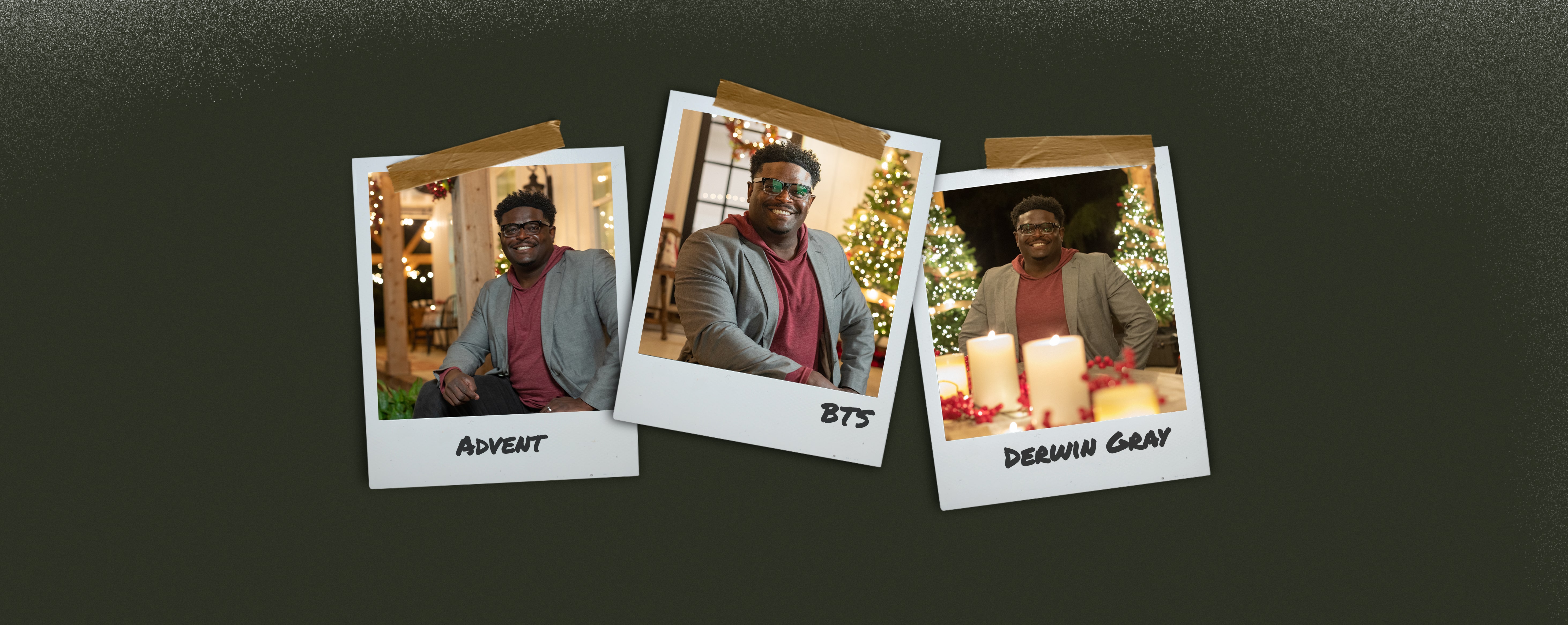

The Christmas season is full of light, joy, and beauty. At the center of our celebrations and family traditions is a vulnerable baby in a feeding trough—Emmanuel, God with us. As Christmas approaches, the season of Advent offers us a chance to reflect on our savior, his purpose, and the surprising ways he invited people near to him.
To help you and your church reflect on the coming, or advent, of Christ, pastor Derwin Gray spent time with our team filming Advent, a five-part series exploring the ways the birth of Jesus changes everything. We caught up with Derwin after he preached at the RightNow Conference to hear about his experience making this series and his hope for everyone who watches it.
Derwin: Filming with the RightNow Media team is not only fun—because they are all hilarious and we have good chemistry because they are great people—but also, they have professional expertise. The way they are able to take content and match it with locations and editing encourages me in my faith. I am excited about this Advent series because they make me better than I am!
Derwin: The biggest thing I learned about Advent was a greater awareness of God’s heart. Advent means “arriving” or “coming.” In the beginning, the Father had already determined that Jesus was going to come and reconcile all things to himself. The way he goes about that is beautiful, mysterious, life-giving, and powerful.
Derwin: I want them walking with Jesus more. Jesus is not just a Sunday friend; he is an all-week, all-the-time companion. He’s Lord. He’s Master.
The beauty of Advent is that we see the beauty and vulnerability of God entering into humanity in a fragile state and form. We see God use people to do incredible things! You don’t have to be the biggest or the best. Mary was just a teenager. Joseph was just some guy! God takes ordinary people and does extraordinary things.
So, I want people to be overwhelmed with God’s grace and the gift of his Son this Christmas.
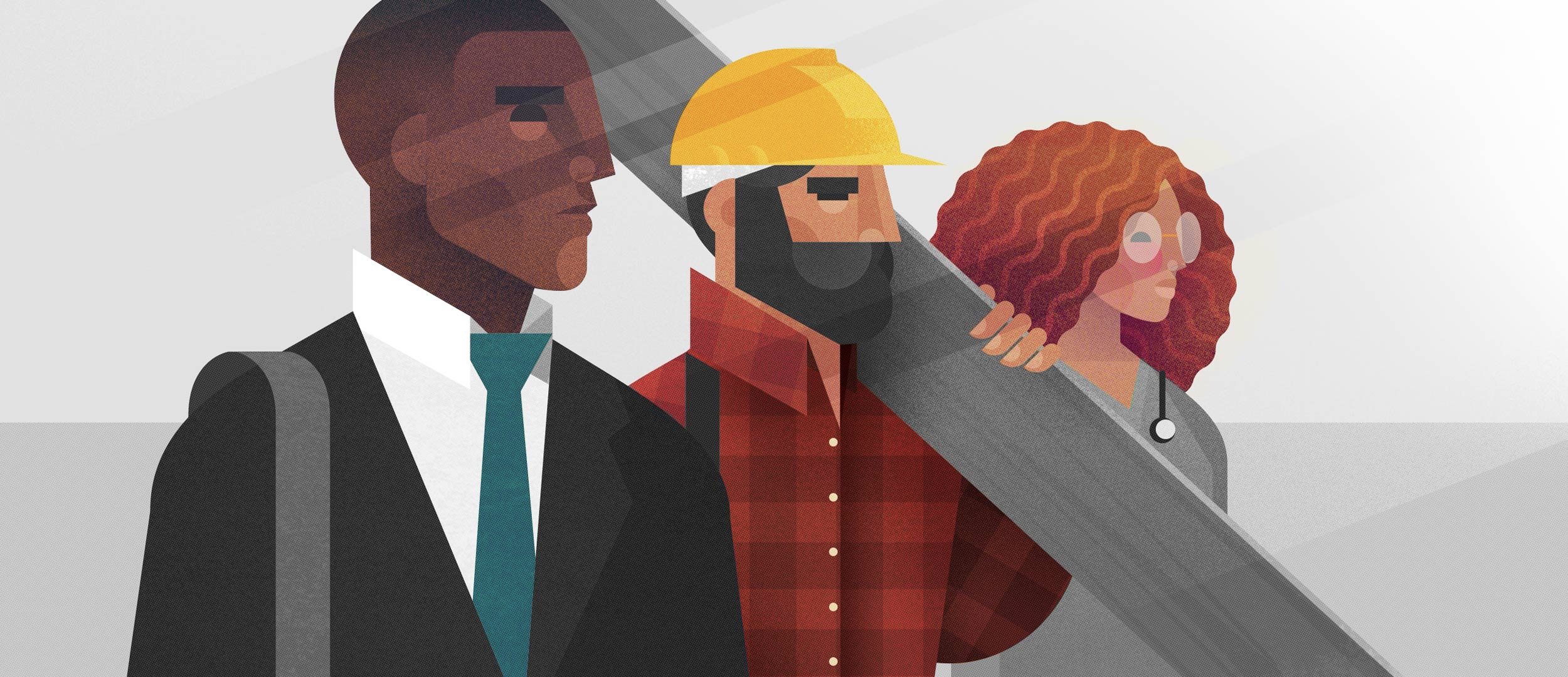

It’s easy to say we agree with the previous statement, but it’s harder to believe it. Many Christians start their workday and wonder if typing on a computer for the entire day is worth the trouble. Teachers struggle to see the value of the work they put into lesson plans, especially when their students do not listen. CEOs of Fortune 500 companies wonder if all the long hours in the office will fulfill their hopes and dreams. In every job sector, people love God but often do not know if God cares about their work.
Work can be challenging and stressful, but it does not have to feel meaningless. Since God cares about our work, we must look to him to understand why our work matters.
The first few pages of Scripture contain God’s perspective on creating the universe. One of the main topics that the first three chapters of Genesis address is work. In fact, over 60% of the verses in Genesis 1–3 say something about work. God labored for six days and then rested on the seventh. When God created humans, the first thing he told them to do was work (Genesis 1:26; 2:15).
Work has always been essential to God’s plan for the world and his people.
God also said all he created was good, which includes humanity and their work. But since the tragic introduction of sin into the world, recorded in Genesis 3, humanity has doubted the goodness of work.
Our labor had dignity before being distorted. So today, we need to see our work as a reflection of God’s goodness—the way God saw it in the beginning. We should not dread our nine to five or see it as a part of the Genesis 3 curse. When we do our jobs, we fulfill a part of our God-given purpose to create, cultivate, and care for the earth. God sees both the garbage truck driver and the astrophysicist and says their work is good.
Many may not know what a J bolt is, but there is a J bolt helping to secure the foundation of buildings all over the world. J bolts are small J-shaped pieces of metal used to secure concrete foundations and provide an anchor for building structures. They look small and insignificant, but they serve people in a major way every day.
Work is one of the J bolts of society. The jobs we do play an essential role in supporting and contributing to the economic and social foundations of our lives. Our work, like a J bolt, impacts people, even when our jobs might look or feel insignificant.
We can also see examples of how work serves people in the Bible. In Exodus 31:1–11, God chose people with specific skills to work with wood, metals, and cloth to provide the necessary tools for Israel’s daily worship. Because of their craftsmanship, God was glorified and God’s people had a place to worship God for generations.
The work we do plays a role in serving our world. Without it, many people would have unmet needs and miss out on the ways our job benefits society. We need godly businesspeople to ensure business transactions involve fairness and equality. We need plumbers to handle our sanitation issues before they become public health concerns. We need metalworkers to make J bolts so our buildings can stand firm. No matter what we do, our work matters because it serves others.
Christians can be tempted to think a vocation is only spiritual if it’s a ministry job. But being a pastor is not the only job that can impact the kingdom. The Great Commission from Matthew 28 tells us that God calls his people to go all over the world to share the good news of Jesus Christ. But if the church has any chance of reaching the world, pastors cannot be the only people who use their vocation as a platform for the gospel.
What better opportunity is there than going to work every day to share the Christian life with many who do not know Jesus? Colossians 4:3 encourages Christians to pray for “open doors” to spread the name of Christ. God can use us in our jobs to build his kingdom, whether we are a professional football player or a high school janitor.
When we look to God for why our work matters, we can see that our jobs have a God-given purpose. God created work and it is good. Our vocation can serve people and grow the kingdom of God. We can therefore approach our nine to five knowing that God cares about what we do and sees our work as significant—to him, his people, and the world.
Are you a business leader looking to invest in a personal care resource for your employees that can help them flourish in every area of life? RightNow Media @ Work, a library of on-demand video resources has a library of over 20,000 videos on topics from leadership and personal development to parenting and finances. Schedule a free demo today!


Developing collegial relationships with coworkers and excelling in our work requires us to build habits—regular practices that govern our everyday behavior and which influence our potential to meet our objectives.
We all already have workplace habits. Some of us walk into the office every morning with a cup of coffee in hand, fueled for the day. Some of us work more isolated, with our headphones on, while others keep a more open posture to interruptions. There’s also the regular, mid-morning break we take at the same time every day to say hello to colleagues down the hall.
Not all habits, of course, prove helpful. Mid-afternoon gossip sessions erode relational trust, as will complaining without seeking solutions.
In his book Habits, author and speaker Marcus Goodloe highlights three relational habits that will bring us more fulfillment in our work. The better coworkers we become, the sooner we can improve our work lives and relationships for the better.
I was eleven years old when I first decided to follow Jesus. One of the first changes I made after becoming a Christian was deciding to believe the best about people until proven otherwise. The toughest test for my resolution was the little third-grade neighbor boy who tormented me at the bus stop. I walked to the bus stop reminding myself to not expect him to annoy me. Maybe he would, but I would begin the day by giving him the benefit of the doubt. When we expect people to disappoint us or react negatively, we set them up for failure and ourselves for frustration. We’ve judged them based on their past, or on our assumptions, neither of which encourages a positive interaction in the present.
As the year progressed, he didn’t bother me as much. Was he the one who changed, or did I? Very possibly, my new attitude somehow communicated itself to him, and we both changed for the better. My husband, a public school administrator who constantly interacts with parents, teachers, and other school employees, calls it “positive presupposition.” When we enter an encounter at work assuming the best, we offer the other person an open mind, a measure of trust, and dignity. If we can put our biases behind us and interact with others from a clean slate, we honor them.
Will some people disappoint us? Of course. But we will know that we gave them a fair shake. And don’t we all appreciate it when others approach us with positive presupposition? When we get into the habit of assuming the best, our work relationships will become healthier and more effective.
One of the reasons we are to assume the best in others is that every person is made in the image of God. Everyone is sacred, or holy. The dignity inherent in each individual demands that we treat them with the respect and honor we all deserve.
Think about what makes you feel valued. Do you appreciate having people make eye contact with you when you are speaking with them? What does it do to you inside when you realize someone is actually listening as you share your concerns, ideas, or dreams? How do you feel when your supervisor asks about your family, remembers a significant day in your life, or assigns you a project that lines up with your passion? Small gestures carry a big weight because they tell us that we are seen and matter.
If you’ve ever played sports, you know the power of teamwork. Each player performs his or her role while depending on teammates to do theirs. Only together do they have a chance of winning. Even athletes in solitary sports like tennis or swimming will admit they cannot win without their coaches, trainers, family, and fellow athletes. We cannot succeed alone. Working in community is an exercise in humility, as we admit we lack certain abilities or talents. But that humility leads to thriving.
We think more creatively, more expansively, and more honestly when we are bouncing ideas off other people. We need each other for inspiration, support, and fine-tuning.
Let’s get in the habit of consulting others, encouraging colleagues, and creating a team that can rely on one another.
The essence of a workplace is the people, not the product. The better we treat one another, the more fulfilling we’ll find our work and the more excellent our work will become. When we assume the best, relate to each other with dignity, and actively seek to work in community, we will make our workplace a place to flourish.
To learn more habits that will improve your work experience and lead you to greater success, check out Marcus Goodloe’s new RightNow Media @ Work series, “Habits.”
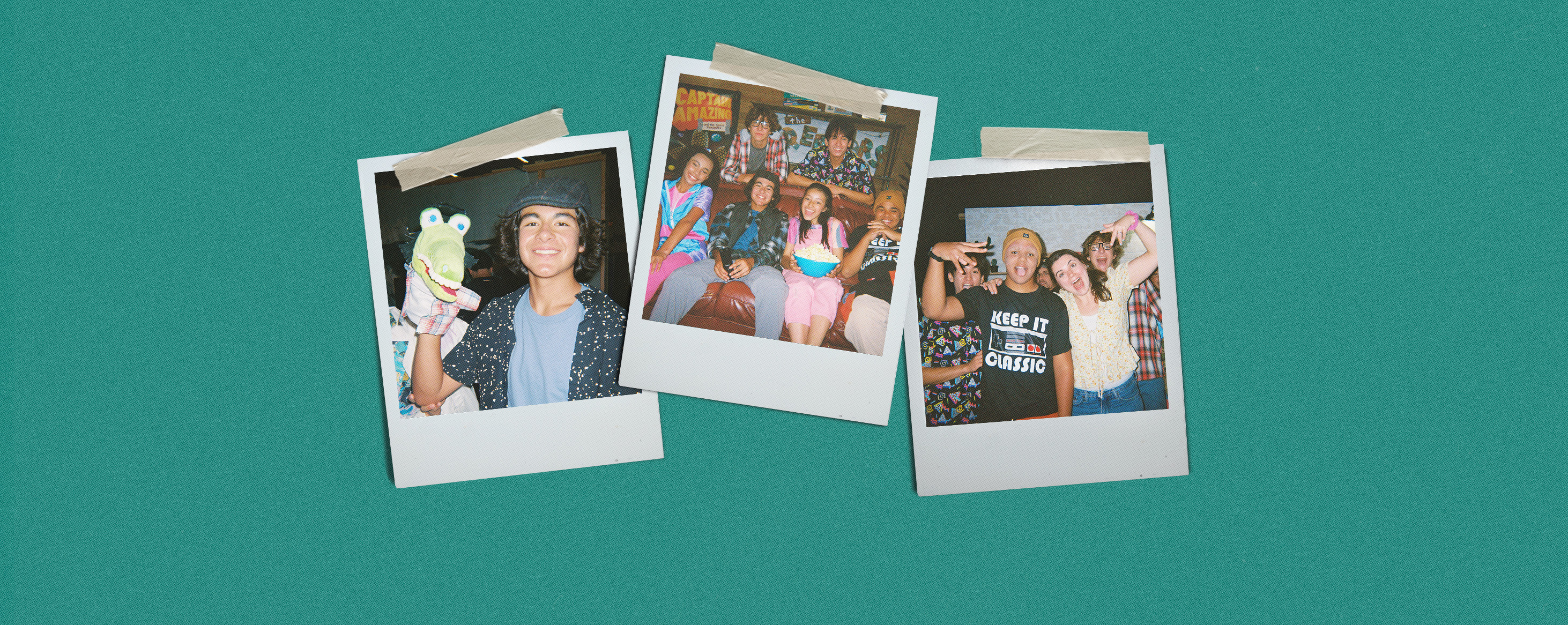

When The Creators first began, some of the actors had never worked on a show before. But by the end of this season, the young actors had not only worked on a show but acted in episodes from over a dozen TV genres, flexed their acting muscles, and even recorded their own music.
Series producer Lindsey McNally shared how the cast visited a music studio to record their vocals for Season 3. “Season 3 is the first time each cast member sings their own music—they have all grown so much as performers.”
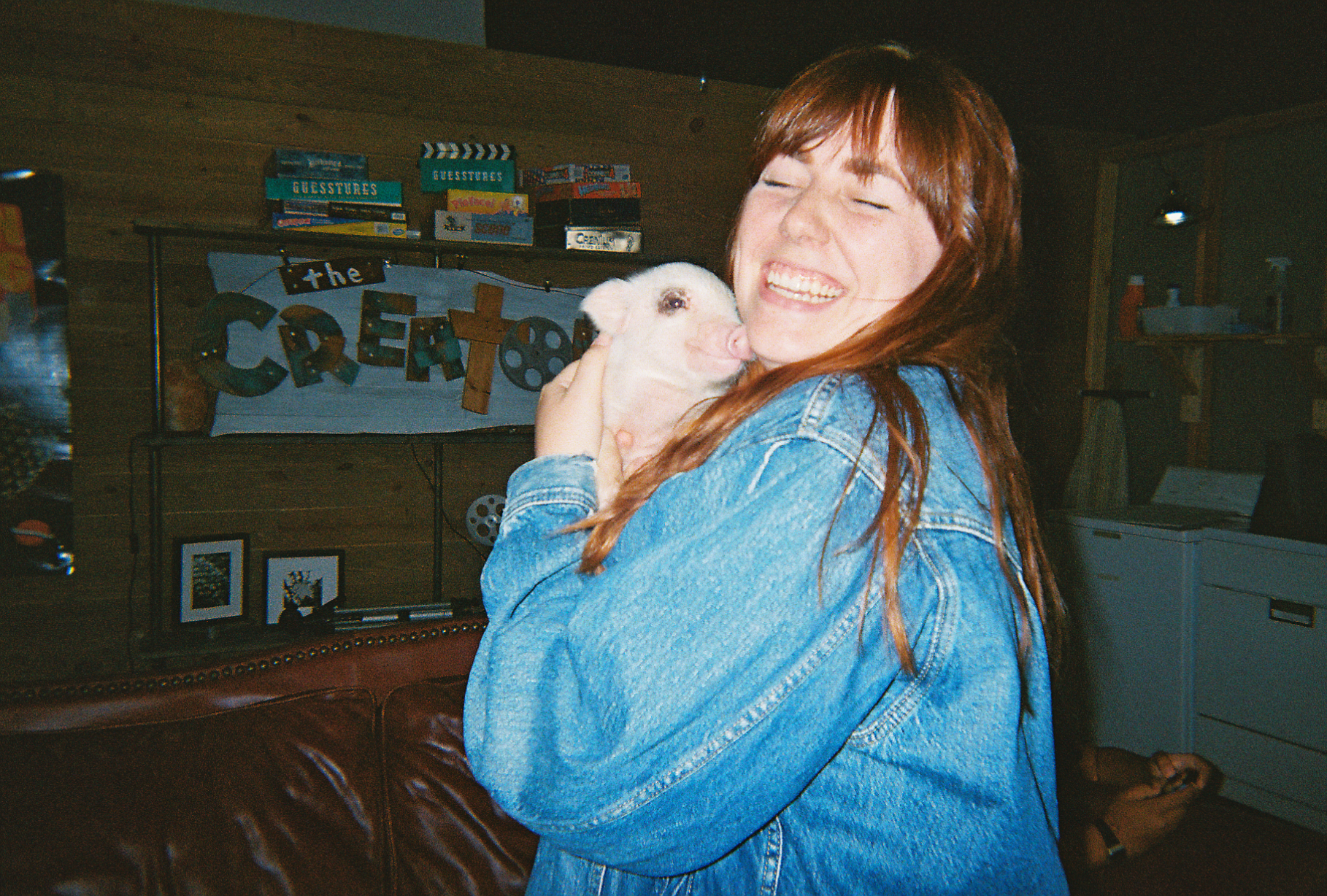
The weeks of production included laughter, birthday parties (facilitated by the cast members' wonderful mothers), and the joys of watching the growth of the amazing cast. The show may be coming to an end, but make sure to keep an eye on the cast as their careers continue. Niko (Art) and Sydney (Zoey) have already done some work together for Nike, and we are sure there is more to come from these talented teenagers.
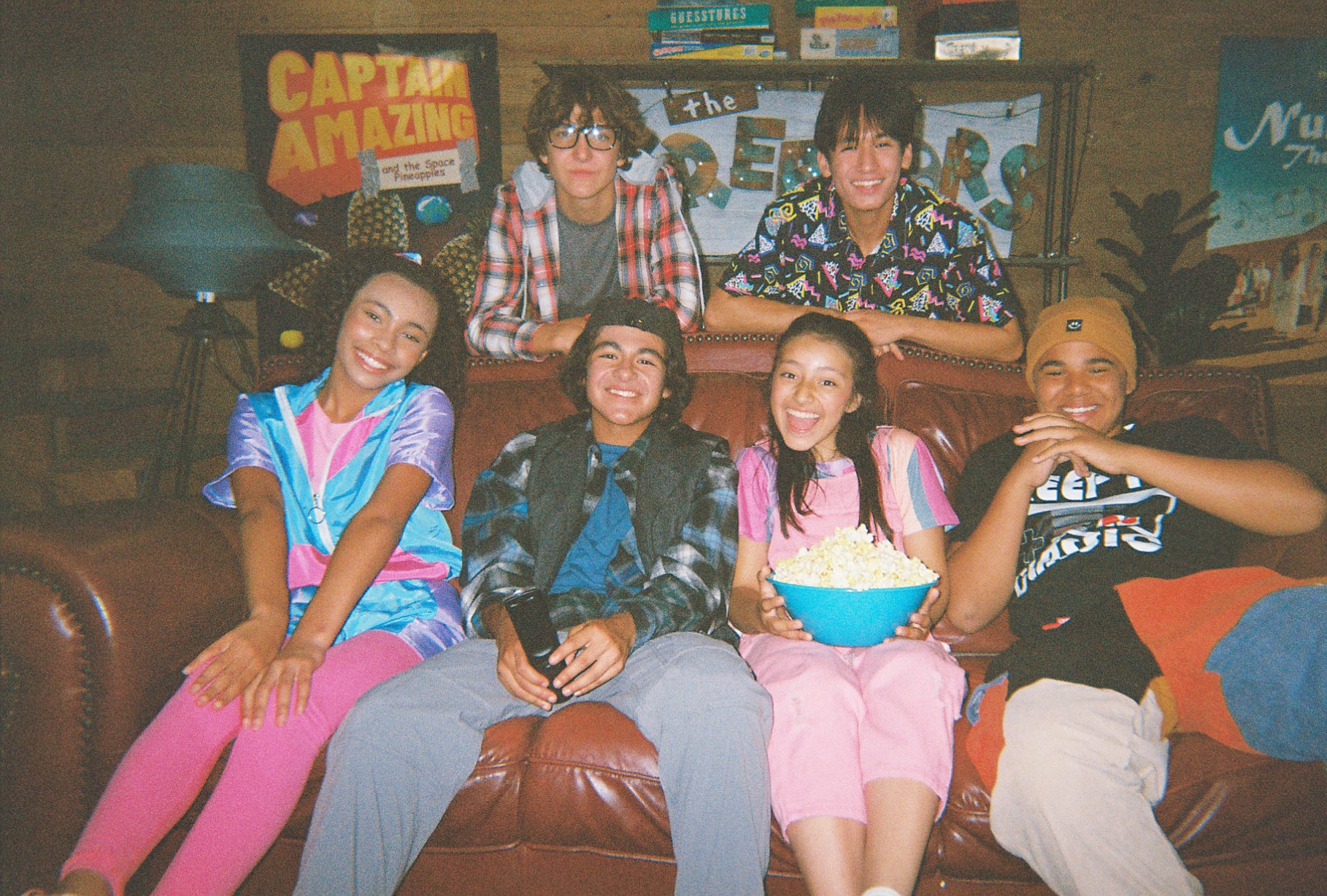
“This type of production was uncharted territory for RightNow Media,” McNally said. “But we took the plunge—in the chaos of 2020, mind you—and God has blown us away!”
“It’s so cool to see how many young lives have been impacted. I don't think any of us expected there to be three whole seasons, but here we are almost four years later.”
We have loved reading your fan mail and watching the videos you were inspired to create after watching The Creators. And, while Season 3 will be the final season of The Creators, we will never forget how the show has entertained, inspired, and encouraged us all.
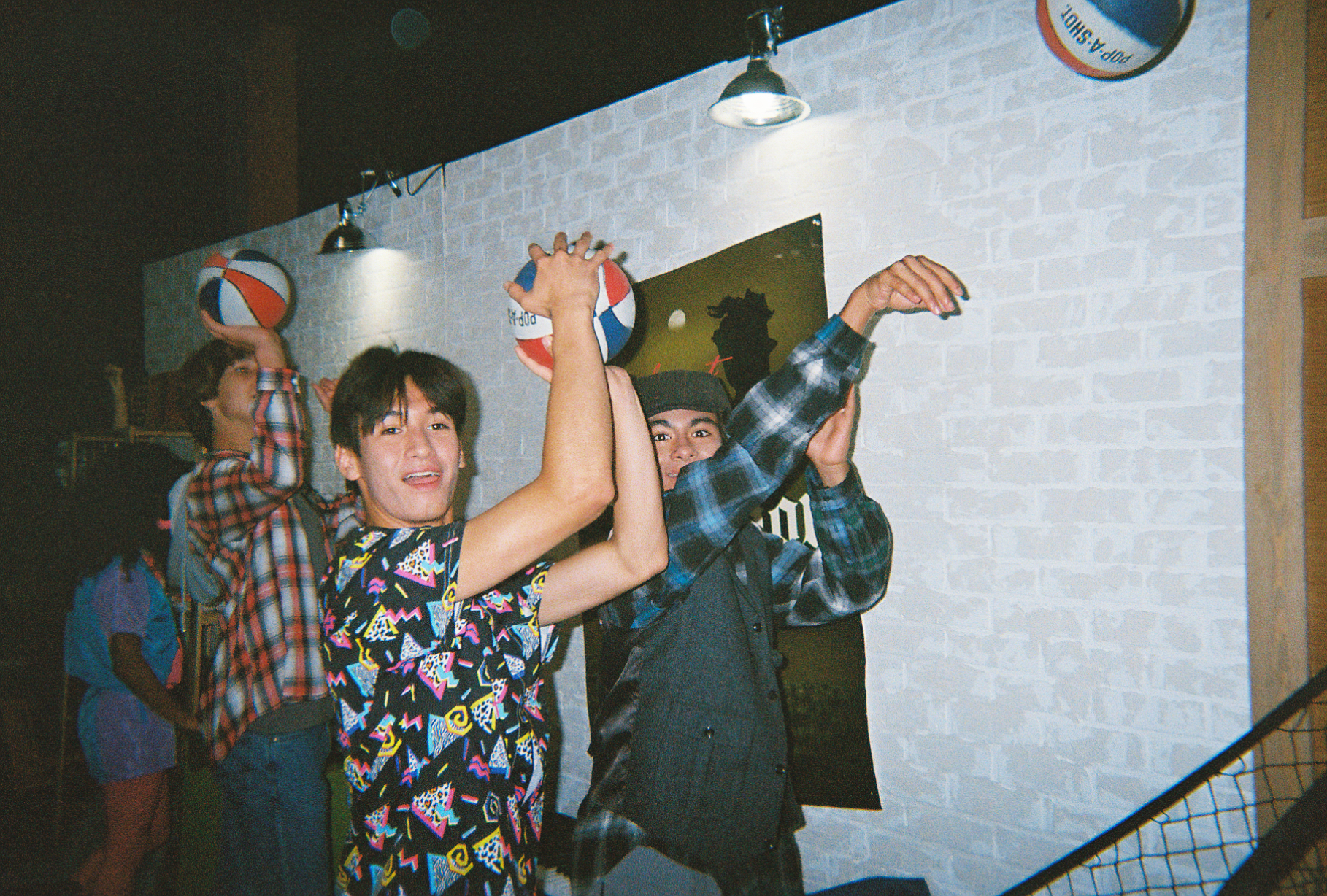
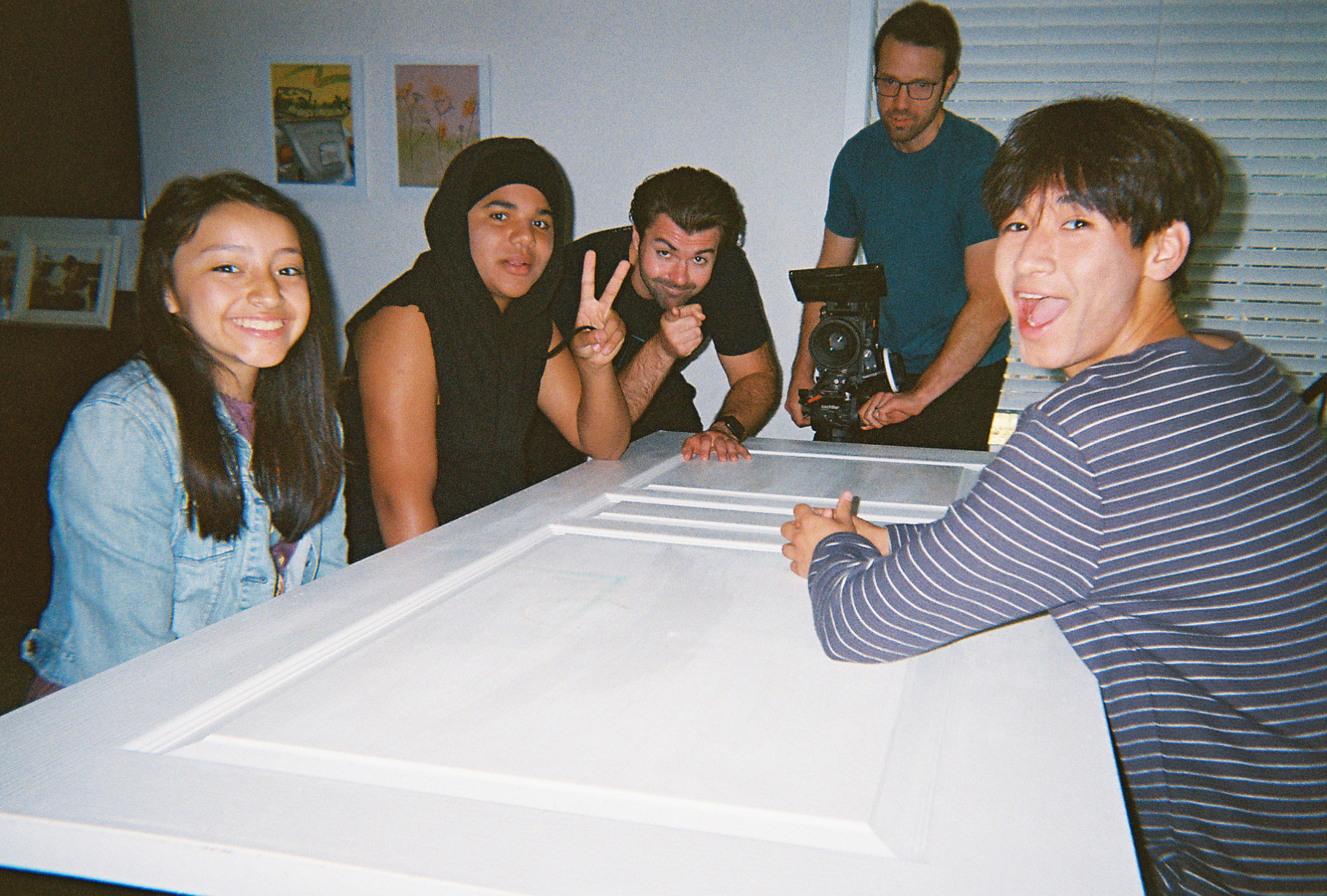
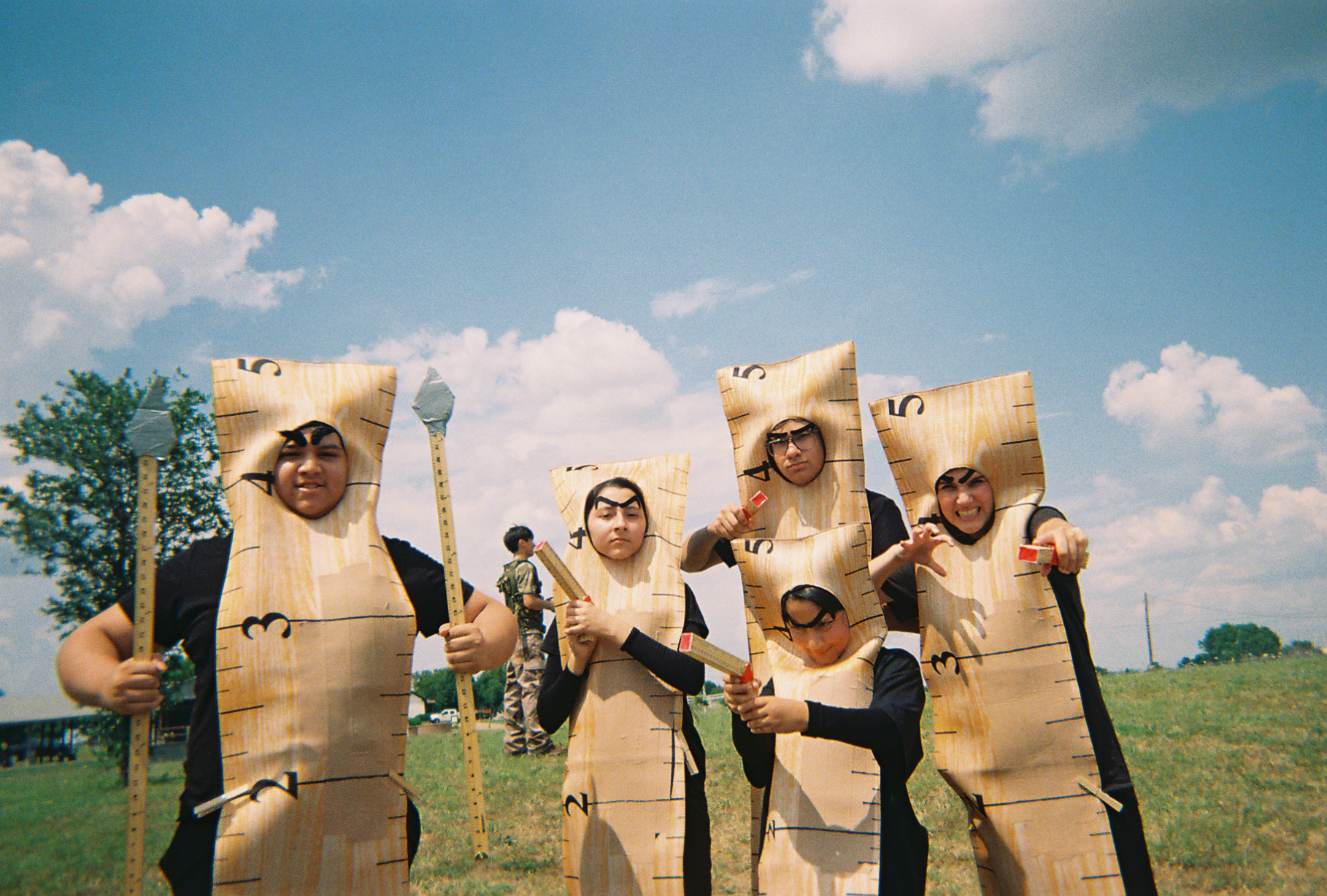
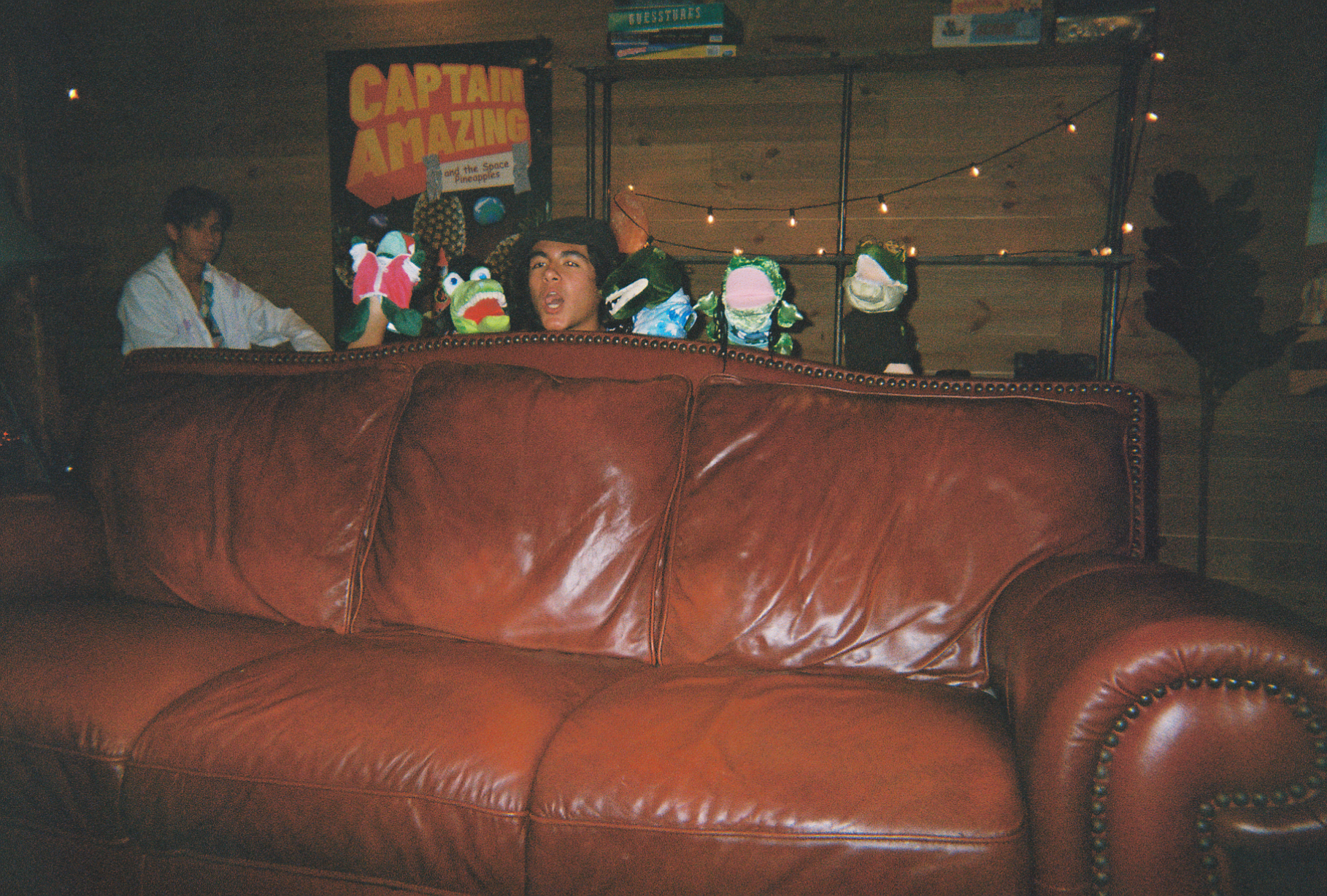
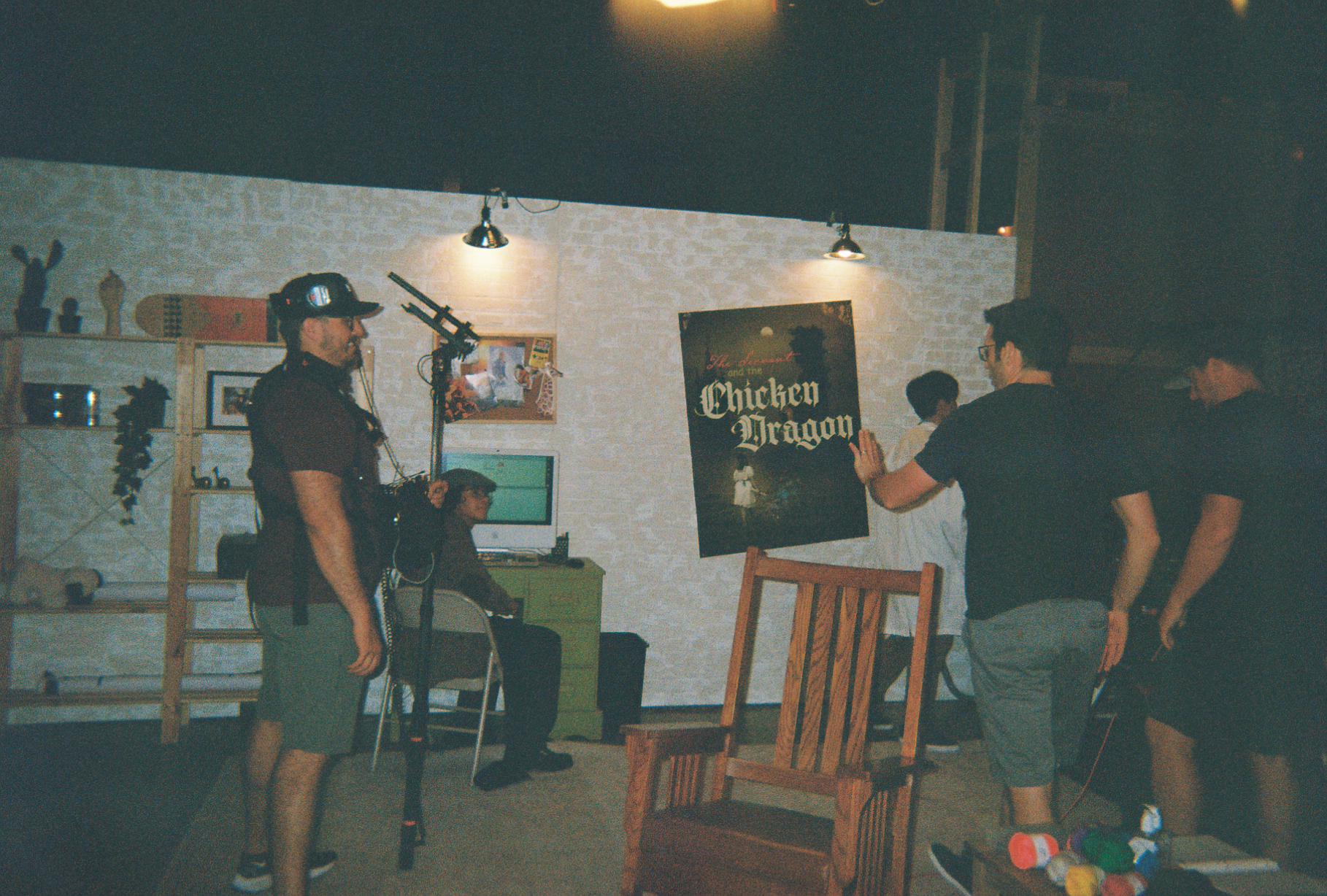
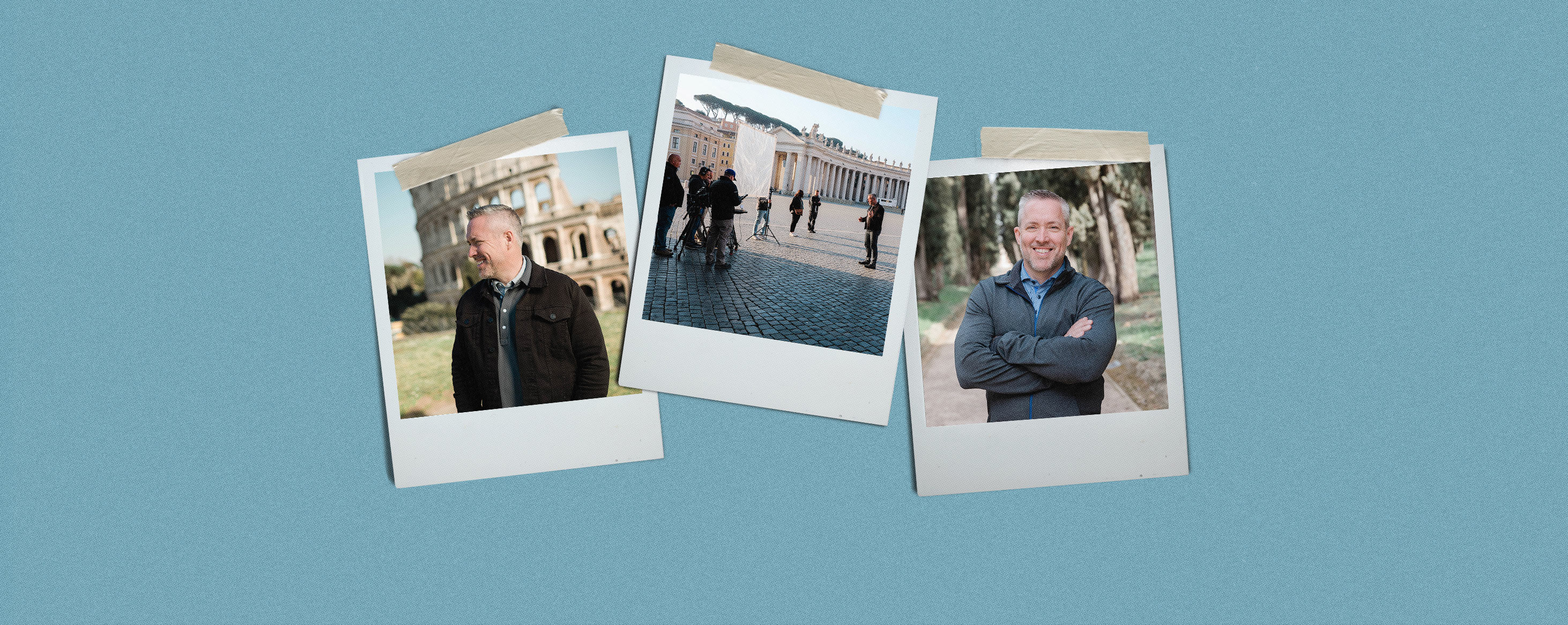

In the book of Romans, the apostle Paul gives readers the most in-depth, comprehensive explanation of the gospel in all of Scripture, showing us what it looks like to live according to the good news. And this good news is better than we could have imagined.
We sent a film crew with pastor J.D. Greear to Rome, Italy to film The Book of Romans: Part 1 and Part 2, a series examining one of the most important books ever written on the Christian faith. In this series, J.D. helps us see just how good the gospel really is. It exceeds all our expectations.
While filming, our team asked J.D. a few questions about preparing for this series and his hopes for small groups.
J.D.: One distinctive thing I think I re-learned as I was prepping for this series is just the distinctive message of grace that the gospel offers. The power of grace to transform our lives. Especially being on location here in Rome where you’re associated with so many different symbols of religion, and all the works-righteousness that goes into religion, and people doing things to try to earn God’s favor. Paul’s message in Romans is [righteousness] is a gift. Righteousness is not a standard that we obtain to; it’s a gift that God gives us. And then in response to that, out of love, we serve God, and we serve others. The power of the gospel, it was renewed in me, rekindled in me, not only as I studied and prepared for this but as I actually taught through it as well.
J.D.: One of the things I think I’m hoping—I’ve been hoping and praying for out of this study—is that this study of the book of Romans, which is one of the deepest and richest looks at the gospel anywhere in Scripture, would have this effect of not only getting us excited about the gospel and transforming our relationships but just burning in our hearts until we have to tell others. The gospel is kind of like a spiritual tornado, it never pulls you in without also wanting to thrust you back out. And so, I think just pressing into the beauties of God’s grace, it just does something to you that changes you so that you not only treat people differently and think about yourself differently, you just find yourself having to talk to other people about the things that you’re learning.
J.D.: So, the most memorable moment, spiritually, is probably going to be down in Paul’s prison. When we’re pretty sure it is the actual cell he stood in before he was executed, and just to think about that—that was amazing. I loved filming from there. You know, always my favorite memories with this are slow walking with Will (Senior Producer at RightNow Media). Just to follow me around with a camera, and just to kind of zoom in on my feet and to make me really self-conscious about my posture, "Am I walking crooked?" So, that definitely is what I’ll take away. Will’s got a special place in my heart.
.png)

In the book of Joshua, we get a front-row seat to the power of God as he led the nation of Israel into the Promised Land. By faith, Joshua and the Israelites overcame the challenges and obstacles they faced with the courage God supplied. And by faith, with God’s strength, we can overcome the challenges we face too.
In 2023, RightNow Media sent a film crew to Atlanta, Georgia to film The Book of Joshua with pastor Louie Giglio. The book of Joshua follows the people of God as they work to secure the land God had promised to them.
While filming, our team asked Louie a few questions about preparing for this series and his hopes for small groups.
Louie: I think one of the things that probably hit me the most preparing to teach through Joshua—and I mentioned it as we were moving through some of the early sessions—is just that Joshua was a man. And that’s important for me to remember, and for all of us to remember, we’re not looking at Bible characters. I was studying the other day about Lazarus, and we all know Jesus raised Lazarus from the dead, but he was about thirty years old when Jesus did that. And somehow, we have these “older Bible characters” and we don’t realize the disciples were twenty-somethings, and Lazarus was twenty-eight or twenty-nine or thirty. And Joshua was older when he was leading the people into the Promised Land, but he was just a human being. It’s like James reminding us that Elijah was a man like us, so I think I just saw through fresh eyes, through the book of Joshua, that this isn’t some superhero that just dropped down out of the Old Testament. But this is a guy of flesh and blood just like me, a person just like you, who is putting their trust in a supernatural source to do supernatural things.
Louie: My big hope for every one of us that’s in this series together is that we will walk away with confidence. I think the enemy, if he could do one thing for all of us, it would be to chip away at our confidence in God and, ultimately, our confidence in ourselves as God is choosing to lead us. Because this is an important time to be alive on planet Earth and God has incredible assignments for every person. Not just special people like Joshua, not just for the special people like Moses, but God has an assignment for every single one of us in our lives. And he’s got an assignment for you. And so, I hope, as you’re going through Joshua with us, that you will sense, “wow, there is a calling on my life. It’s not to be a preacher or a spiritual leader or someone like Joshua—it’s a calling to this particular place and time, and these people.” And that you will sense that there’s purpose in that. That you’re not just spending time on Earth, but you have an assignment on earth to lead people into the fullness of what God has created them for. And I hope everybody sees that and feels more confident about stepping into that. Because there’s probably a river in front of you—an obstacle between you and that calling—and God wants to show you in this series how to grow in your confidence in him so that you can become everything he’s called you to be.
Louie: I think one of the moments I’m going to always remember most about shooting this series is just the incredible team and incredible shoot. RightNow Media, they’re not wanting me probably to say this, but they’re the best team and working with them is always an incredible experience for me. And just their vision of wanting to build the church and serve people and see people grow in their faith and become more committed followers of Jesus, it really is inspiring. And it doesn’t feel like we’re just here with camera and lights and background, and we’re making a theme, it feels like there’s a collective heart in this room right now to want to serve people. And I think that’s going to be for me the most memorable thing about this. I stand in front of a lot of cameras, I stand under a lot of microphones, there are lights on me a lot of the time, and you can tell a difference when it’s a job and when people really want to see hearts change. And I know I came here today because I have the honor and privilege of being on a journey with people to see their lives change, and see my life change, as we’re in this Word together, and I really believe that all the people in this room with me right now have that same heart. And that’s what makes a shoot like this enjoyable, but it also makes it satisfying and meaningful. And I’ve loved being a part of this journey together.



